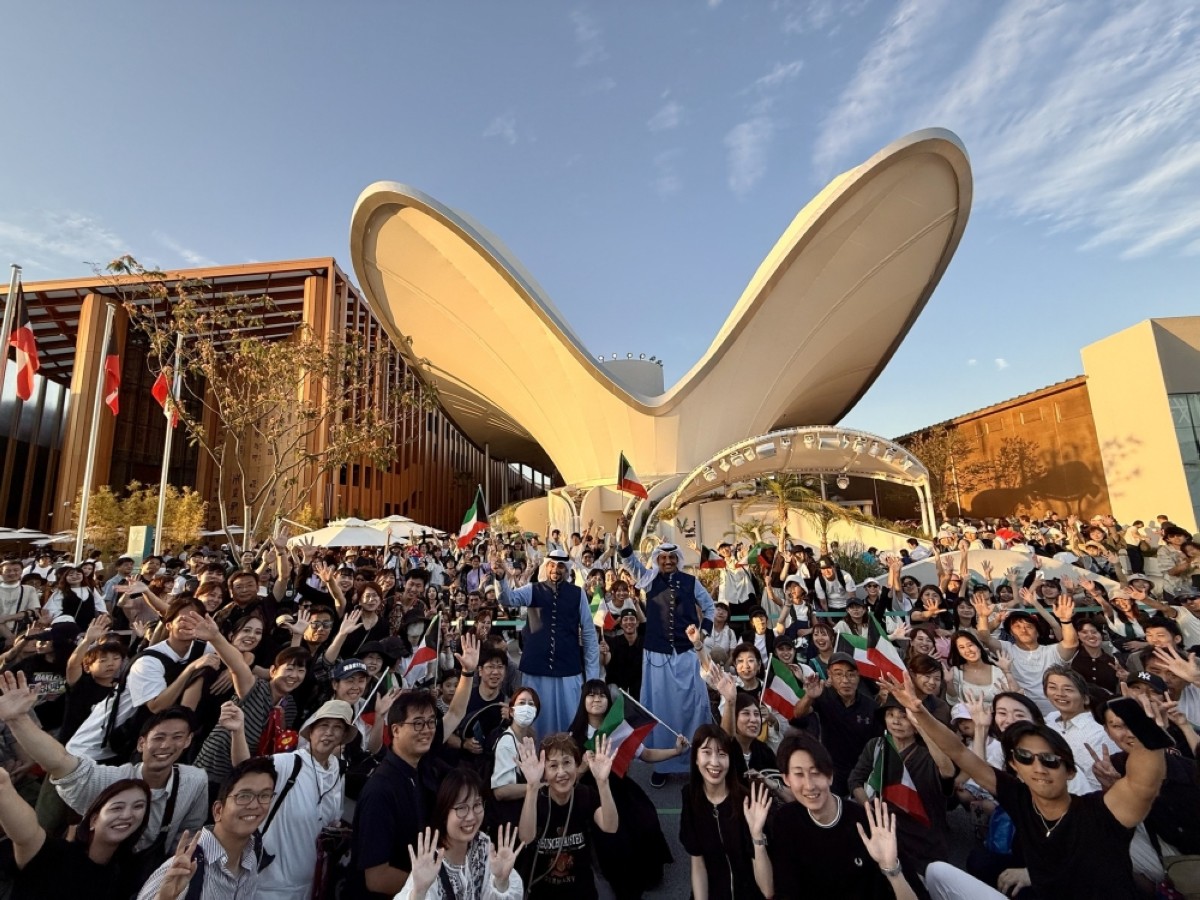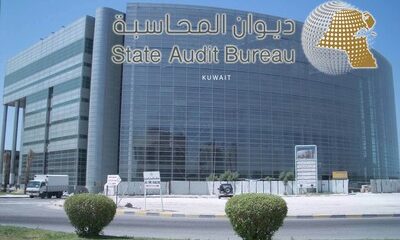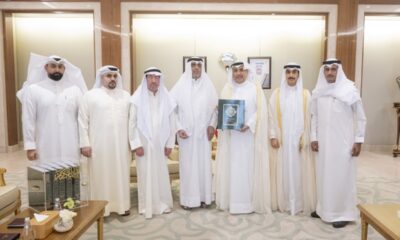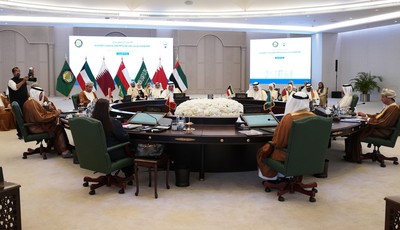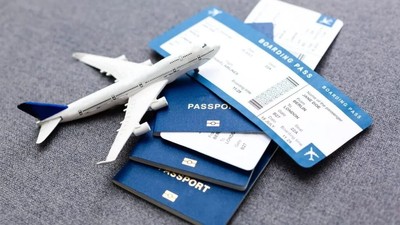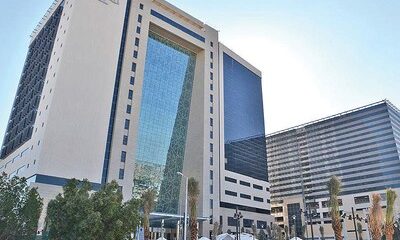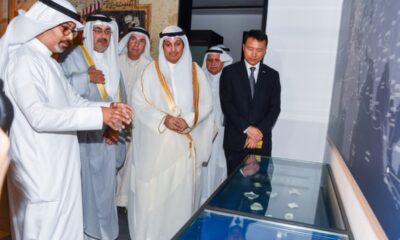KUWAIT: Kuwait’s sweeping changes to its entry system are fueling a surge in visitor numbers, positioning the country to capture regional travel demand and family reunions this winter. As the summer fades, experts say the reforms will attract a large influx of family visa holders and short-term visitors.
“This is a remarkable humanitarian step by Kuwait, allowing families to reunite and live with dignity. It reflects the nation’s commitment to social harmony and human values,” commented Mubarak Al-Hajri, Deputy CEO at ENASCO, a company providing marine and inspection services.
In August, the government removed the minimum salary requirement, expanded eligibility to a wider circle of relatives and extended visa validity periods up to one year. Combined with a new all-in-one e-visa platform covering tourist, family, business and official categories, the measures mark Kuwait’s most liberal entry regime in decades, fully aligned with its New Kuwait 2035 vision.
As Al-Hajri noted, the changes are far-reaching for many expatriates. “I am really happy and thankful to the authorities. I brought my family to Kuwait on a visit last month,” said an elated Phil Anthony, a Filipino restaurant worker in Salmiya earning KD 350. “I never thought I could bring my wife here with that kind of salary.” Others, including taxi driver Shareef Padavil and clerk Joseph Williams, echoed his joy at finally reuniting with loved ones.
“Removing the salary cap for family visit visas is probably one of the most crucial and significant changes in Kuwait in recent times,” said Hussain Ibrahim, a travel executive in Kuwait. “Any legal resident can now apply without meeting a fixed salary threshold — a barrier that previously excluded many lower-paid workers.” Official tourism data for 2025 is not yet available, but projections suggest Kuwait’s travel and tourism market will generate $1.04 billion in revenue by the end of the year, with continued growth expected following the radical visa reforms.
Uptick in aviation sector
The reforms are already boosting the travel and hospitality sectors. “There is a clear uptick in Kuwait’s aviation traffic,” said P N J Kumar, General Manager of Caesars Travels, Kuwait. “Inbound flights are nearly full even after the summer rush. We also notice many senior citizens among the passengers — elderly parents of expatriates who can now visit without restrictions,” he noted.
According to Ibrahim Al-Kandari, a Kuwaiti businessman, the ripple effect extends beyond airlines. “Extended family stays will benefit hotels, serviced apartments, restaurants and retail trade,” Al-Kandari said. Multi-entry visas valid for up to a year are also expected to encourage repeat trips within the same season, multiplying the economic impact, he pointed out.
“Kuwait’s new visa changes are a step in the right direction, making it easier for families to reunite and for visitors and businesses to see Kuwait as a friendly and open destination,” said Kaizar Shakir, Chairman of the Indian Business and Professional Council (IBPC), Kuwait, and Director and CFO of Gulf Consult. The upgraded e-visa system and the new ‘Visit Kuwait’ portal are designed to reduce processing time and paperwork, centralizing access for GCC residents and eligible nationalities. Officials believe the easier entry process will help Kuwait close the gap with regional peers. “Kuwait, which historically attracted fewer tourists than its GCC neighbors, is now betting that simplified entry and easier reunification for expatriate families will boost its share of seasonal arrivals. And we have started to see results,” added Ibrahim.
Unified GCC visa
A unified pan-GCC visa system, expected to be launched by the end of 2025, will further bolster Kuwait’s tourism growth, noted Abdul Nasser, a travel company official. The new system, modeled on a Schengen-style visa for the six GCC member states — the UAE, Saudi Arabia, Qatar, Kuwait, Bahrain and Oman — is expected to usher in hassle-free travel across the region. A pilot program of the ‘GCC Grand Tours Visa’ is currently being run on a trial basis, he added.
Winter has traditionally been the Gulf’s strongest tourism season, with cooler weather, school breaks and festive holidays driving demand. Yet Kuwait has long trailed behind its neighbors such as Dubai, Qatar and Saudi Arabia. “That gap underscores the upside,” Kumar said. “With the salary cap gone, a huge pool of lower-income expatriates can now bring in family members. Even if a fraction of them do, we could see double-digit growth in visitor arrivals over the next two quarters.”
According to estimates, Kuwait’s travel and tourism market is expected to generate $1.04 billion in revenue by end-2025, with an annual growth rate of 5.6 percent between 2025 and 2030 — reaching a projected market volume of $1.37 billion by 2030. Kuwait’s population is estimated at 4.9 million, with expatriates making up nearly 70 percent. Indians remain the largest community, followed by Egyptians and other Asian nationals — groups expected to drive much of the new demand.
Renewed optimism
For many expatriates, the new visa system represents more than convenience — it signals inclusion. “Kuwait has always been a second home to us, and now it feels even more welcoming,” said Shareef Padavil, echoing the sentiment of many. Industry observers believe the momentum could reshape Kuwait’s perception in the region. “These are well-calibrated reforms,” said Ibrahim. “They will help the country move closer to its long-term tourism and social development goals.” With the onset of the winter season, the warmth of family reunions and renewed visitor interest seem to perfectly capture Kuwait’s new spirit of openness — one that blends economic opportunity with human connection.


